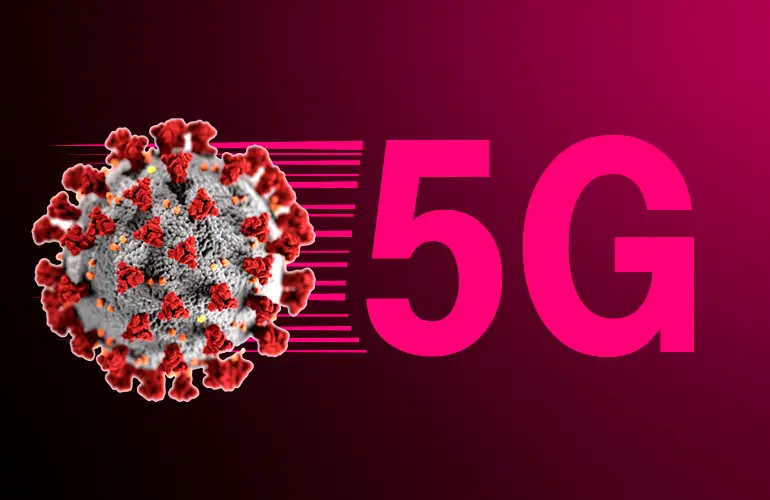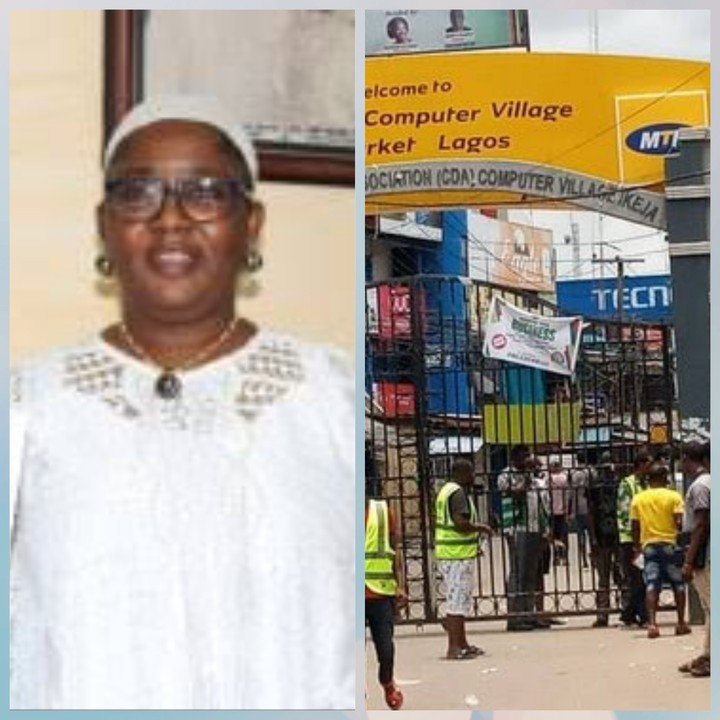FG Approves National Policy On The Use Of 5G In Nigeria Chrysora Media, reports
The Federal Executive Council, FEC, yesterday approved the national policy on fifth generational networks for Nigeria’s digital economy, 5G.
The policy includes the deployment of 5G network.
The Minister of Communications and Digital Economy, Dr. Isa Pantami, who disclosed this while briefing State House correspondents after the Federal Executive Council, FEC, meeting presided over by President Muhammadu Buhari at the First Lady’s Conference Room, Presidential Villa, Abuja, also said the federal government shut down telecommunication activities in Zamfara State over banditry at the instance of security agencies.
He said: “Furthermore, the policy discusses the benefits to be attained through the deployment of 5G in Nigeria and in any part of the world which includes lower latency, larger capacity, and higher data rate.
“These are the three major benefits of fifth generation. And in a simple language, we can say it will open many opportunities economically, academically, educationally and even in the health sector. And it will also support our security institutions, particularly in areas where they need high quality services.
“So, these are some of the benefits to be anticipated when fifth generation or 5G is deployed in Nigeria.”
He recalled that during 5G network trials in Nigeria in 2020, some citizens had complained about its alleged link to COVID-19, which he said had been dispelled.
Pantami said: “Prior to that, as you all know, in 2020, there was a time we started the fifth generation trials. And there was a complaint from citizens about the relationship between 5G and COVID-19.
“Because our government is a responsible one, we put everything on hold. We engaged more stakeholders. We spent almost 18 months working on that. And we also waited for the resolution and verdict of the two most important organisations globally when it comes to the deployment of telecommunications facilities.
”These are the International Telecommunications Union, ITU, which is an arm of the United Nations, and also World Health Organisation, WHO, which is another arm of the United Nations. Both of them confirmed that there is no adverse health effects of 5G and it has not been proven to be any harmful to our health.
“Most importantly, even its frequency and radiation is even lower than that of 4G, and it is lower than the televisions and microwave we have at home.
“So, they have already issued that. And they explain about its safety, and also they advised nations on the regulations and the standards to be used in the course of the deployment. And the Nigerian Communications Commission has been directed to ensure that all the standards, regulations are complied with.”
He disclosed that the 5G spectrum would soon be released by the National Frequency Management Council to the Nigerian Communications Commission, NCC.
Pantani explained: “The National Frequency Management Council, which is the statutory council in which I happen to be the chair will release the spectrum of 5G to the Nigerian Communications Commission in bulk when the conditions of deployment are met, so that the Nigerian Communications Commission on behalf of the federal government of Nigeria, will release the spectrum to the mobile network operators for the deployment of 5G.
“With the approval of this national policy on fifth generation, or 5G, NCC has been directed to start working immediately to come up with regulatory instrument that will ensure its safety, and many more.
“Our government gives more priority and preference to the health and security of our citizens as in the Constitution of Nigeria 1999 as amended under Section 14, Subsection 2 Article B.
FG Approves National Policy On The Use Of 5G In Nigeria
“So, that is why our subsidiary legislation is going to be developed to ensure that 5G will only be useful in Nigeria, and we cannot allow it to be harmful in any place.”
In his remarks at the briefing, the Senior Special Assistant to the President on Media and Publicity, Malla Garba Shehu, who moderated the briefing, said FEC also approved the National Policy of Food and Nutrition.
He said FEC also approved the consultancy for the design and construction of the second runway of Nnamdi Azikiwe International Airport in Abuja for N500 million.
ALTON reacts
Reacting, the Chairman, Association of Licensed Telecom Operators in Nigeria, ALTON, Engr Gbenga Adebayo, said that the approval means that Nigerians will soon experience the launch of a network which can transform the economy based on the speed it gives to internet activities.
He said: “We know that every generation of technological evolution comes with some form of resistance, but 5G has transformational powers. Each generation comes with increasingly more efficient telecommunication network performance in terms of the geographical area covered. They also determined the number of devices connected and powered, latency and redundancy, which speaks to the speed of uploading and sending or downloading of data over the network per second.
2G, first introduced in 1992, is the second-generation of cellular telephone technology and the first to use digital encryption of conversations. 2G networks were the first to offer data services and SMS text messaging, but their data transfer rates were a bit lower.
3G networks succeeded 2G, offering faster data transfer rates and are the first to enable video calls. This makes them especially suitable for use in modern smartphones, which require constant high-speed internet connection for many of their applications.
“4G is the fourth generation and a successor to the 3G. It provides ultra-broadband internet access for mobile devices. The high data transfer rate makes 4G networks suitable for use in USB wireless modems for laptops and even home internet access.
“For example, while the first, second and third generations of network with all their capabilities came with minimal data speed capabilities, 4G network which also works on same radiofrequency of 2.5Gigahertz, can power 100,000 devices within a square kilometre.
“However, 5G, the fifth generation of mobile phone communications standards, promises to be faster than previous generations while opening up new user cases for mobile data.
It will operate at humongous 95 gigahertz and power up to 1 million devices per square kilometre. It will power internet of things and do a lot more”
Despite the controversy surrounding the fifth generation, 5G network, technology experts have consistently called on Nigeria to quickly fine-tune policies and processes towards an immediate deployment of the network.
Telecom engineers, economists and advocacy groups, including GSM Association, GSMA who x-rayed the dynamics of the 5G economy, noted that Nigeria stood to gain unquantifiable mileage from the economic boost that the network can engender.
Already South Africa and Kenya have deployed the network. They are believed to be way ahead of Nigeria, in connecting people, things, data, applications, transport systems and cities to a smart, networked communication environment, supporting applications such as smart homes and buildings, smart cities, autonomous vehicle.
FG Approves National Policy On The Use Of 5G In Nigeria
They are also enabling 3D videos, remote medical services, virtual and augmented reality and massive machine-to-machine communications for industry automation, among other innovations.
The Minister, who also disclosed that the shut down of telecom service in Zamfara was done at the instance of security agencies, said the measure did not originate from his ministry.
He explained that the security agencies proposed it as an effective way to curtail the bandits.
On whether the shut down will be extended to Katsina, Kaduna and other bandit-infested states, he declined to comment on it because of its security implications. Pantami, however, explained that government was willing to sacrifice economic gains in the telecom sector for security benefits.
Appealing to Nigerians to show understanding to the measure and support the efforts of the security agencies, the minister also stated that available information from the security circle showed that the action was yielding positive results.
He said: “I will begin by responding to my friend, the first questioner, about shutting down telecommunications facilities in some parts of Northwest of Nigeria. Prior to responding to the question, I want to clarify to all of us that the Constitution of Nigeria, 1999, Section 14, Subsection 2, under Article B, has expounded to us that the primary responsibility of government is the security and welfare of its citizens.
“Understanding the priority of security makes the administration of President Muhammadu Buhari to always make sure that our priority number one is security because this is what the Constitution says and any action to be taken, as long as it will support security institutions to achieve and deliver their responsibilities, government is willing to do that for them.
“Furthermore, security issues cannot be discussed in public like this. Most importantly, I am not in the better position to justify the shutting down of telecommunications because of security.
“I am aware of the shutting down, but the request is not from us. Rather, the request is from the security institutions; they asked for that as part of their strategy.
“Because of this, government allowed them to go ahead and the reason for doing that I may be aware of some, but I’m sorry to say it’s not for public discussion.
“What I only plead with all of us, as lay men, is we shall try to give our security institutions the support they need in order to deliver on their mandate.
“Security issues today are not only for the security institutions alone, but there is also a role that each and every citizen can play in order to make their work more successful.
“So, I plead with the media to support our security institutions and let us give them the benefit of doubt. When they come up with a strategy, let us not unnecessarily criticise it, except we allow them to begin and see.











Add Comment